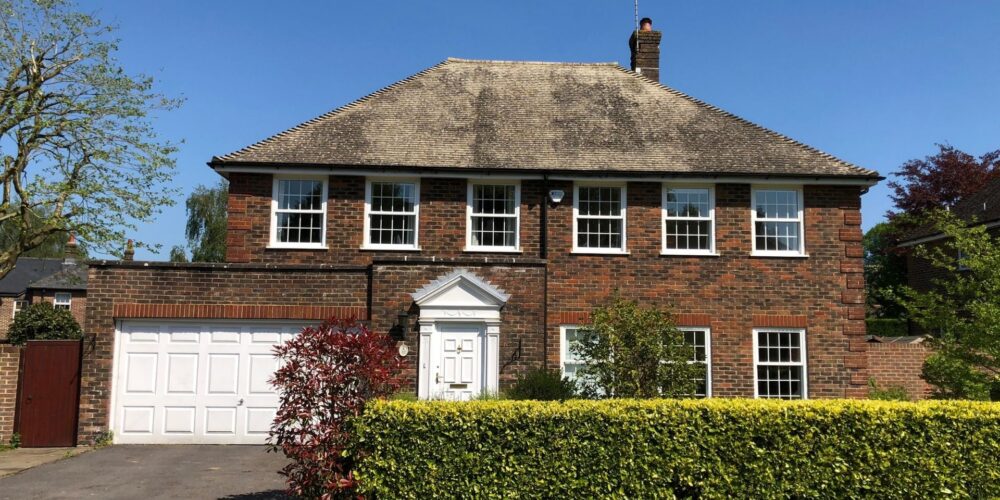In April 2022 the Bank of England revealed mortgage approvals had fallen to their lowest level since June 2020. Experts said this was a sign rising interest rates were starting to affect people’s appetite for moving. What will rising interest rates mean for your mortgage and how can you protect yourself from increased costs? We looked at MoneySuperMarket survey to find out how interest rates work and what it means for you.
Interest rates, also known as the Bank Rate or sometimes the base rate, are set up by the Bank of England to control inflation and the UK economy. In 2009 they were cut to just 0.5% in reaction to the fallout of the financial crisis. Since then they have been very low reaching a record of 0.1% between March 2020 and December 2021.
But with inflation rapidly increasing, the Bank Rate went up in December 2021 and then again in February 2022, March 2022 and May 2022. It is widely predicted that the movement in 2022 will continue upwards. But how will interest rates affect your mortgage and how can you protect your monthly mortgage payments from going up?
If interest rates rise, mortgages will become more expensive. Lenders will typically pass on the increase in the Bank Rate to their customers in the form of higher monthly mortgage payments. This will cost you more over the term of your mortgage. The way mortgage interest works on your home loan depends on the types of mortgage deal you have – a fixed rate or variable rate.
A fixed-rate mortgage deal sets the interest rate on your mortgage repayments for a pre-determined period. This means your monthly repayments will be the same each month until the end of the agreed fixed-term. A variable rate mortgage is a type of home loan in which the interest rate is not fixed. Instead, interest payments will be adjusted at a level above a specific benchmark or reference rate.
If you are about to buy a home or remortgage, it is worth looking at fixed-rate mortgage deals to lock into a lower rate for the next few years and shield yourself from rising rates. If you’re on a fixed rate mortgage deal there will be no changes in your rate or monthly payments in 2022 and until your deal ends. Once this fixed-rate deal finishes, new fixed rate deals rates are likely to be much higher reflecting the inflation.
If you are on a variable mortgage deal, the rate is likely to be influenced by a rise in the Bank of England Bank Rate. It is also at the lender’s discretion. In some cases a lender may pass on a bigger rate increase to its variable mortgage rates, for example, or the rate increase could be less than the change to the Bank Rate.
If you are on a tracker mortgage your mortgage rate will always increase in line with any rise in interest rates. Tracker mortgages usually follow the Bank of England’s base rate, which is the interest rate at which high street banks borrow money. If you are on a variable rate mortgage or a tracker mortgage, your repayments will rise with any increase to the Bank of England rate. It is possible that your rate and payments will increase even further this year.
As a borrower, you need to be aware that even a small increase in the Bank Rate can translate into a significant increase in your monthly mortgage costs.
According to a MoneySuperMarket survey, if the Bank of England puts interest rates up by 0.5%, that would add £56 a month to a 25-year £200,000 mortgage for those on a variable or tracker mortgage deals.
Are there any ways to protect your mortgages from rising interest rates?
If you are on a variable rate mortgage, the best way to protect yourself from rising rates is to move to a fixed rate. In many cases, this is likely to be the sensible option as you can lock into a lower rate for two, three or even five years.
Typically the best fixed-rate deals are quickly withdrawn by lenders if there is the hint of an interest rate rise – so you need to act fast.
Note some catches – while there should not be early redemption penalties for leaving a standard variable rate mortgage, there could be an arrangement fee when moving to a new fixed rate deal. Also remember to factor in expenses such as valuation and conveyancing fees.
If you are currently on a fixed rate, do not wait for the deal to expire. A new mortgage deal can be secured in advance. When choosing a new fixed rate mortgage, it is worth looking at longer-term fixes of five or even 10 years, as long as you are comfortable with.
There are several steps you can take to keep your mortgage costs as low and affordable as possible.
As we suggested in our previous articles, first time buyers should try to save up as much towards your cash deposit as possible. This means that you will need to borrow less on a mortgage and your loan-to-value (LTV) will be lower. With a lower LTV, you will be able to access more competitive interest rates.
When switching to a new mortgage deal (remortgaging) you should be able to access better rates than before, as now your LTV will be less than previously.
If you have serious concerns about paying your mortgage, speak to your lender as soon as possible. Together you should be able to find a solution to make your repayments manageable – either through restructuring the debt (increasing the term to bring down monthly repayments for example) or with a short-term payment holiday.

